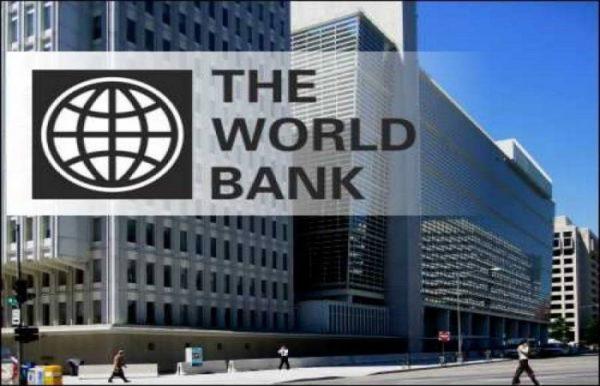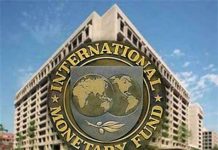•It’ll end up compounding our economic woes, if… — Prof. Uwaleke
The Federal Government’s decision to seek a $1.5 billion facility from the World Bank to address the fiscal gap in the 2023 budget has received reactions from economists who said it would hurt the economy both in the medium and in the long run.
They, however, stated that it may help the government to foot some major recurrent expenses like paying salaries, but the impact will be tremendous in the days to come.
The economists advised the Federal Government to make do with the revenue accruing to it from the removal of fuel subsidy, and exchange rate differentials, and should rather increase its crude oil output to meet its OPEC quota in order to earn more money.
According to the experts, the loan may end up compounding the country’s economic woes if it comes with a lot of conditions especially to do with the implementation of IMF/World Bank recommendations in relation to ongoing reforms in Nigeria or if it is going to be used for cash transfers or applied to non-capital projects.
Paul Alaje the Chief Economist at SPM Professionals said, “What we are looking for technically to close the gap in the 2023 budget is approximately N1.1 trillion. In spite of the removal of subsidy and more revenue coming to the government, it still seems not to be enough. Already our debt profile is over N70 trillion. How can we continue to do the same thing and expect a different result, I doubt.
“How is this expected to help the economy? It may be for the government to perform major recurrent expenses like payment of salaries, etc. The impact is going to be tremendous in the coming days. It is because, when we look at what our exchange rate is, by the time we pay back, what are we really going to pay back?
“I mentioned it when former President Muhammadu Buhari’s administration was raising Euro Bonds, what is the value of those Euro Bonds today? I can tell you that we are now going to pay more than 100 percent of what we borrowed in actual sense both in principal and interest because of our devaluation policy.
“The impact is that it would hurt the economy in the medium and in the long run.”
In his reaction, Professor Uchenna Uwaleke, Director, Institute of Capital Market Studies, Nasarawa
State University Keffi said, “It all depends on what the loan is meant for and its terms and conditions.
“If it is a long-term loan with a very low-interest rate and a period of moratorium to be applied to a self-liquidating project, then it is welcome.
“But if it has come with a lot of conditions especially to do with the implementation of IMF/World Bank recommendations in relation to ongoing reforms in Nigeria or it is going to be used for cash transfers or applied to non-capital projects, then it only ends up compounding our economic woes.”
On his part, Gbolade Idakolo, Managing Director, SD&D Capital Management Limited said, “The $1.5 billion World Bank facility will help the government augment the 2023 budget. The facility is expected to assist the government in intervening in infrastructural development and servicing existing obligations. The facility is expected to stabilise the economy whilst increasing significantly our debt burden.
“The new economic team is expected to fashion out policies that would reduce or eliminate government borrowing in the 2024 budget by shoring up revenue from tax and other income lines. The government plan to increase crude production and encourage investment in critical sectors of the economy would also assist the government in meeting its revenue projections.”
Aliyu llias, a financial analyst told the Tribune Online that, “I don’t think it is the right thing to borrow for the fiscal year. We should make do with what we have now. We should increase our oil output to meet our OPEC quota. If the Federal Government borrows, it would also encourage states to borrow. We have removed fuel subsidy, the naira is being floated and the IMF/World Bank has been discouraging borrowing/spending.
“It will deepen our debt ratio and our level of debt servicing is not good. Even if there is a moratorium of 10 years, we still have to pay back. We must look inwards to generate revenue internally.”
While acknowledging Nigeria’s talks with the World Bank on $1.5 billion budget support, the Minister of Finance and Co-ordinating Minister for the Economy, Mr. Wale Edu on Saturday at a press conference in Marrakech Morocco agreed that it is correct.
He said the World Bank is the number one multilateral development bank helping developing countries or funding developing countries’ projects and programmes, and sectors.
Edun said, “It has free money through either International Development Association (IDA). It is for the poorer countries and right now I think we qualify as one of the countries that can borrow in the normal window of World Bank funding but also some concessionary IDA funding and that means that effectively the interest rate will be zero.
“So, there is no stigma attached to qualifying for World Bank funding to help finance development. In this particular case, it has long been in the pipeline, and we are hoping that funding will come through soon.
“A lot of hard work is being done. There is a Federal Executive Council meeting on Monday, that should be able to discuss this, as well as other initiatives for financing on reasonable terms. We have talked about the high costs of money, the World Bank money is the cheapest.”










